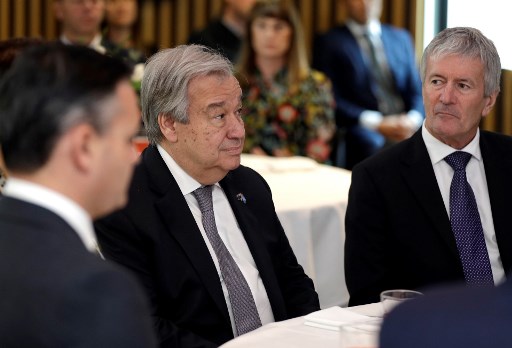
PORT VILA, Vanuatu (AFP) — UN Secretary-General Antonio Guterres said it was vital “to save the Pacific to save the world” as he wrapped up his brief South Pacific tour in Vanuatu on Saturday.
Guterres has spent the past week in the region pushing for urgent action ahead of a UN summit in September billed as a last chance to prevent irreversible climate change.
According to the UN, Vanuatu is the world’s most at-risk country from natural hazards, but Guterres said it was also “leading the way” with is resilience.
At a joint press conference with Vanuatu’s Prime Minister Charlot Salwai, Guterres praised the way the country had bounced back from the catastrophic Cyclone Pam which lashed the archipelago in 2015.
It claimed at least 15 lives, flattened villages and impacted nearly half the 300,000 population.
“It is clear that the Pacific is on the frontline of climate change even though they don’t contribute to climate change,” Guterres told AFP, referring to low-lying Pacific islands which are threatened by rising sea levels.
“So the Pacific has the moral authority to offer a lesson for the rest of the world. We absolutely need to save the Pacific to save the world.”
The UN target is to limit rises to 1.5 degrees Celsius (2.7 degrees Fahrenheit) above pre-industrial revolution levels and Guterres urged governments “to understand that we need transformative measures, in industry, in agriculture and in relation to the oceans”.
“I believe it is time to recognise that we need to shift taxation away from people to carbon and pollution instead,” he said.
“We need to stop subsidies for fossil fuels. It doesn’t make any sense that taxpayers’ money is contributing to increased storms, the spread of drought, glaciers melting, corals bleaching and putting these islands in danger.”
© Agence France-Presse







